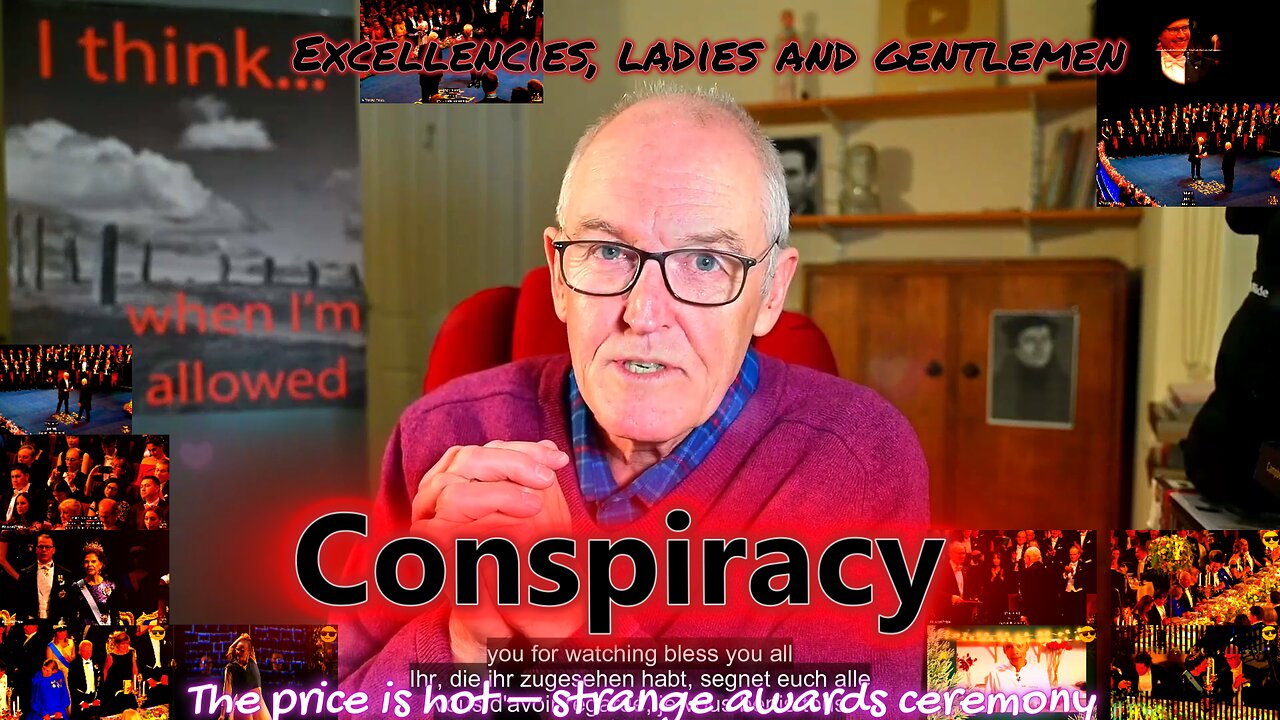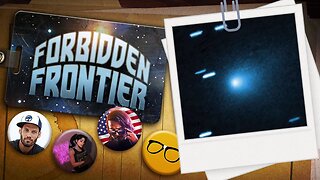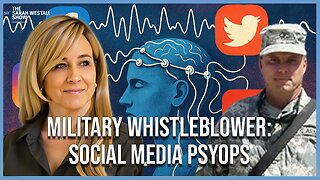Premium Only Content

Conspiracy . Campbellteaching . award ceremony
April 8, 2025, Dr. John Campbell /Campbellteaching
We were badly misled about the event that changed our lives. https://www.nytimes.com/2025/03/16/op... Since scientists began experimenting with dangerous pathogens in laboratories,
the world has experienced four or five pandemics.
1977: Russian Flu
Almost certainly a research accident. https://armscontrolcenter.org/wp-cont... Scientists quickly suspected the strange Russian virus of 1997.
2020: Speculation about a lab accident – crackpots and crackpots.
Crazy/eccentric/quarrelsome to feel superior/fantastic/insane
Many, public health officials, prominent scientists – conspiracy theory
A nonprofit organization, the EcoHealth Alliance
Lost a grant for planning risky research on bat viruses at the
Wuhan Institute of Virology, lax safety standards
But
77 Nobel laureates and 31 scientific societies joined forces to defend the EcoHealth Alliance
consensus.
However, we have since learned that some officials and scientists, in order to create the appearance of consensus, have concealed or downplayed key facts, misled at least one reporter, orchestrated campaigns by supposedly independent voices
and even shared experiences on how to conceal their communications to protect the public from the whole truth. https://www.telegraph.co.uk/us/news/2... Donald McNeil Jr. said their efforts to derail him influenced the newspaper's coverage of the theory and likely contributed to the issue being shelved for a year.
Details of the Wuhan lab's research have now emerged – safety precautions may have been shockingly lax.
Is this just history?
Anyone who needs convincing that the next pandemic is just an accident away should watch Cell. https://www.sciencedirect.com/science... Researchers, former and current employees of the Wuhan Institute of Virology,
describe how they took virus samples from bats and experimented to see if they could infect human cells and pose a pandemic risk.
"Inadequate for working with potentially dangerous respiratory viruses."
You'd think we'd have learned by now that testing possible gas leaks with a matchstick is a bad idea.
And one would hope that prestigious scientific journals would have learned not to reward such risky research.
Why haven't we learned our lesson?
To admit now that it's risky—must it have always been risky?
And that we may have been deliberately misled.
When a novel, bat-related coronavirus broke out in Wuhan, and researchers soon discovered that the pathogen shared the same rare genetic trait that the EcoHealth Alliance and Wuhan researchers had proposed for bat coronaviruses (https://theintercept.com/2021/09/23/c...), one might have thought EcoHealth would have sounded the alarm widely.
But it didn't.
Without the public records requests, leaks, and subpoenas, the world might never have learned of the disturbing similarities between what might have happened in the lab and what was spreading in the city. (https://www.lemonde.fr/en/les-decodeu... https://www.nytimes.com/interactive/2... The proximal origin of SARS-CoV-2)
(Nature Medicine, 2020) https://www.nature.com/articles/s4159... "We consider a laboratory scenario implausible."
However, we later learned through Congress's subpoena of their Slack conversations that while the scientists publicly dismissed the scenario as implausible, many of the authors privately considered it not only plausible, but even probable. https://www.thetimes.com/uk/science/a... https://theintercept.com/2023/07/12/c... https://reason.com/2024/06/18/anthony... Evolutionary biologist Kristian Andersen (Slack messages)
"The lab-escaped variant is so damn likely because they've already been involved in this kind of research, and the molecular data is completely consistent with this scenario..."
---
2024 Nobel Prize award ceremony
Broadcast live on December 10, 2024
Join us live in Stockholm for the Nobel Prize award ceremony which takes place at the Stockholm Concert Hall, Sweden, on 10 December – the anniversary of Alfred Nobel’s death. At the ceremony, the Nobel Prize in Physics, Chemistry, Physiology or Medicine, Literature and the prize in economic sciences are awarded to the Nobel Prize laureates.
-
 LIVE
LIVE
vivafrei
21 hours agoEp. 278: D.C. Peace Wave! Big Tish & Nipple Judge SPANKED! "Maryland Man" Trafficker FREE & MORE?
6,758 watching -
 LIVE
LIVE
Nerdrotic
1 hour agoMysteries of 3I/ATLAS | Forbidden Frontier #113
506 watching -
 11:52
11:52
Exploring With Nug
41 minutes agoWhat’s Hiding Under This Dallas Lake We Found a Vehicle!
654 -
 LIVE
LIVE
Barry Cunningham
6 hours agoBREAKING NEWS: PRESIDENT TRUMP SET TO TAKEOVER CHICAGO AND BOSTON!
1,600 watching -
 LIVE
LIVE
SpartakusLIVE
1 hour agoThe BADDEST Duo in WZ Exhibits PEAK Physique || Duos w/ Sophiesnazz to start, quads later
619 watching -
 LIVE
LIVE
LumpyPotatoX2
1 hour agoSunday Funday on HellDivers - #RumbleGaming
81 watching -
 3:11:52
3:11:52
Esports Awards
4 hours agoEsports Awards: Decade Awards 2025
41.2K3 -
 1:02:58
1:02:58
Sarah Westall
2 hours agoMILITARY WHISTLEBLOWER: How Social Media Military Level Psyops are Manipulating You w/ Patrick Bergy
6.03K3 -
 30:41
30:41
Stephen Gardner
1 hour ago🔥WHITE HOUSE GETS UNEXPECTED BIG WIN!
10.4K10 -
 9:39
9:39
MattMorseTV
3 hours ago $0.31 earnedVance just DROPPED a BOMBSHELL.
10.4K41